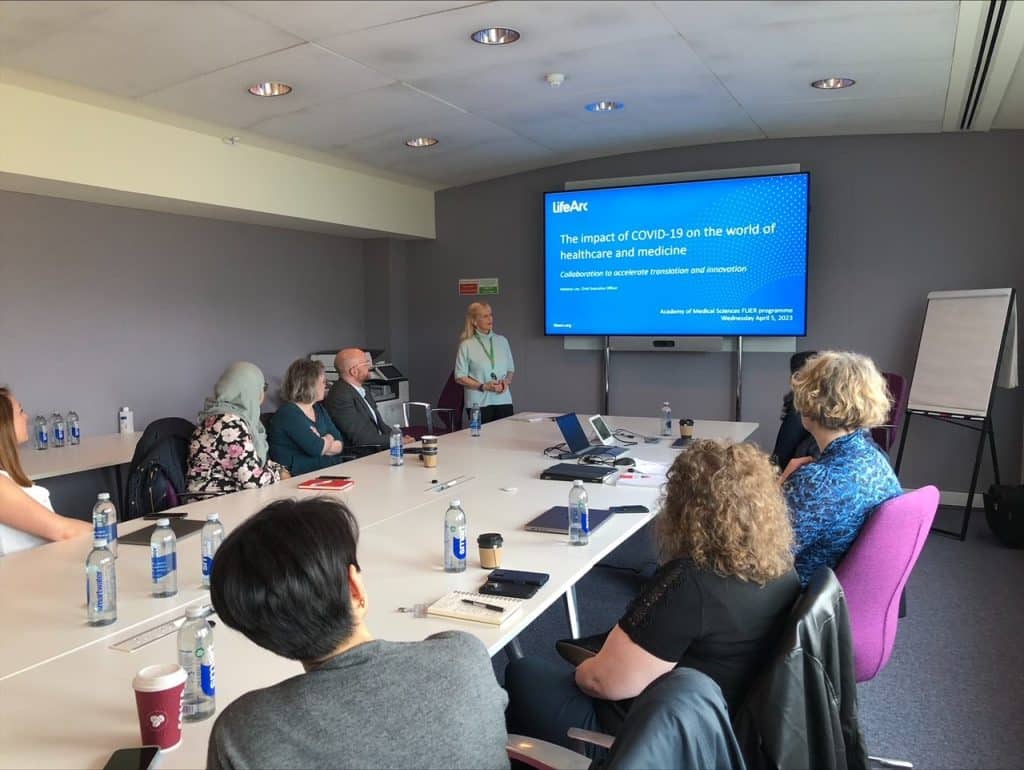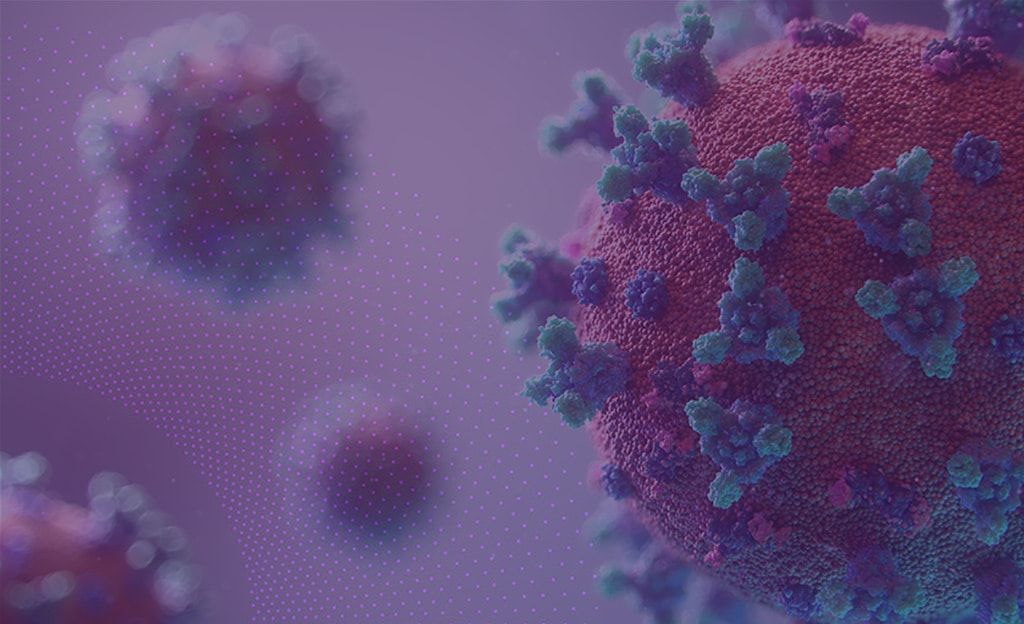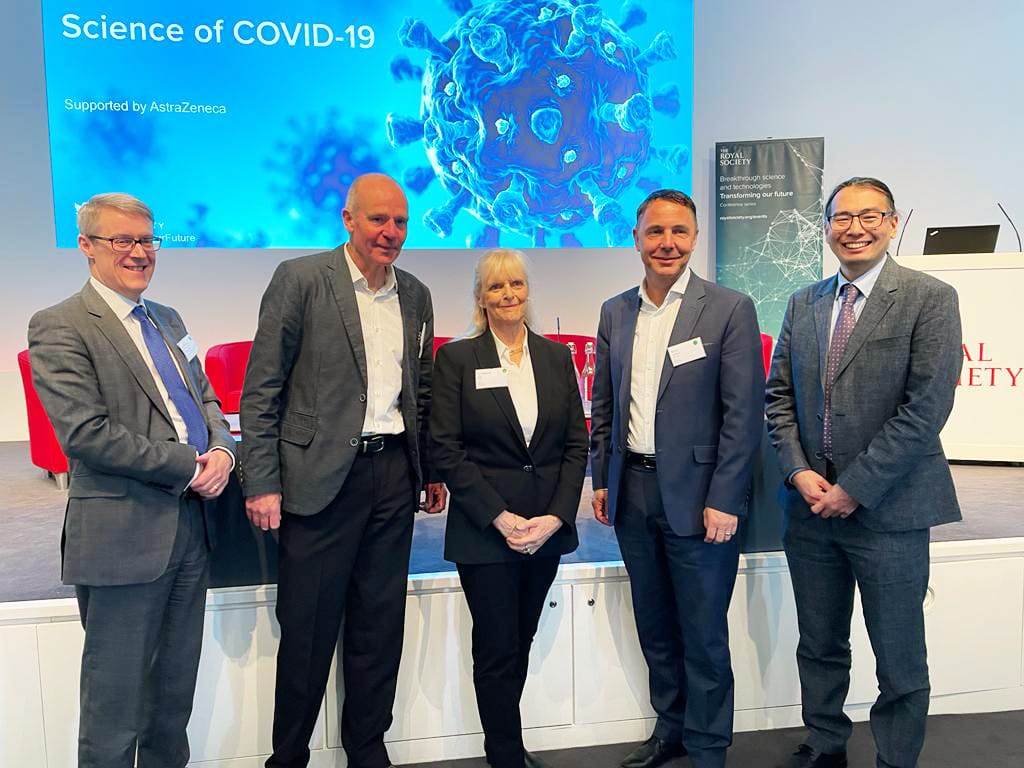Scientists have always understood the value of collaborative working. But the truly revolutionary advances in life sciences research, digital and technology happening at pace now make this a pre-requisite skill in future leaders.
To be able to work with multiple partners from different disciplines and join up the myriad dots from different sectors will be a game changer in driving forward healthcare innovation.
That’s why the Academy of Medical Sciences runs the FLIER programme. FLIER stands for the Future Leaders in Innovation Enterprise and Research and is a two year immersive learning programme to equip emerging leaders with the skills to tackle the biggest health challenges society faces, and to deploy opportunities emerging from new ideas across science, technology and medicine.
The latest cohort I spoke to recently did not disappoint. Among them there were medical specialists, optometry and vision science professionals, charity professionals, clinical researchers and biotech entrepreneurs crossing technologies, from AI and machine learning to engineering and pharmaceuticals.
 They came from a rich variety of backgrounds in academia, charity, industry and NHS, and they all demonstrated a willingness to break down traditional barriers between different scientific disciplines and industry boundaries to harness multi-disciplinary approaches to solve complex healthcare challenges.
They came from a rich variety of backgrounds in academia, charity, industry and NHS, and they all demonstrated a willingness to break down traditional barriers between different scientific disciplines and industry boundaries to harness multi-disciplinary approaches to solve complex healthcare challenges.
I spoke to the group about the impact of COVID-19 on the world of healthcare and the power of collaboration to accelerate medicines innovation. COVID-19 and the rapid development of vaccines and therapeutics are the perfect example of what can be achieved when partners work together at speed to deploy different research knowledge, scientific, manufacturing and NHS capabilities towards solving a critical problem.
At LifeArc our modus operandi has always been based on collaboration – bringing experts and disciplines together to create the ecosystem needed to unlock science and accelerate medical progress. Harnessing the power of ambitious multi-disciplinary collaboration lies at the heart of our 2030 strategy to invest £1.3bn to unlock the potential of early-stage innovation in areas of unmet need where we believe we can have the greatest impact for patients.
While we are at the start of this journey, it’s exciting to see multidisciplinary partnerships in action already. Last year we launched the LifeArc Chronic Respiratory Infection Translational Challenge, our new multi-million pound mission to accelerate innovation for patients living with bronchiectasis (BE) and cystic fibrosis (CF). As part of this work, we are partnering with researchers at Royal Papworth Hospital NHS Foundation Trust to fund new UK-wide trials investigating if machine learning technology can transform how people living with chronic respiratory conditions manage their health.
Previous studies have shown that machine learning technology has the potential to improve health and spot signs of lung infections days before symptoms appear, avoiding admissions to hospital.In this new trial, the research team, led by Professor Andres Floto (Royal Papworth Hospital and the University of Cambridge), will examine the impact of home monitoring and machine learning decision support algorithms for people with CF and bronchiectasis.
We are also working with many partners – academics, charities, healthcare professionals and industry – in our Motor Neuron Disease (MND) Translational Challenge, to make MND treatable by 2030 and ultimately to find a cure.
330,000 people live with MND around the world today, 1 in 3 die within one year of being diagnosed and half die within two years of a diagnosis. We are building an international coalition of experts to help translate scientific discoveries into real world solutions for the early detection, the right diagnosis and better treatment for MND.
These are just two examples of how we’re unlocking the life-changing potential of science. Keep up to date on their progress and more news from our Translational Challenges by subscribing to our newsletter.
Media contact
Hannah Severyn
Head of Media and PR at LifeArc
hannah.severyn[at]lifearc.org



